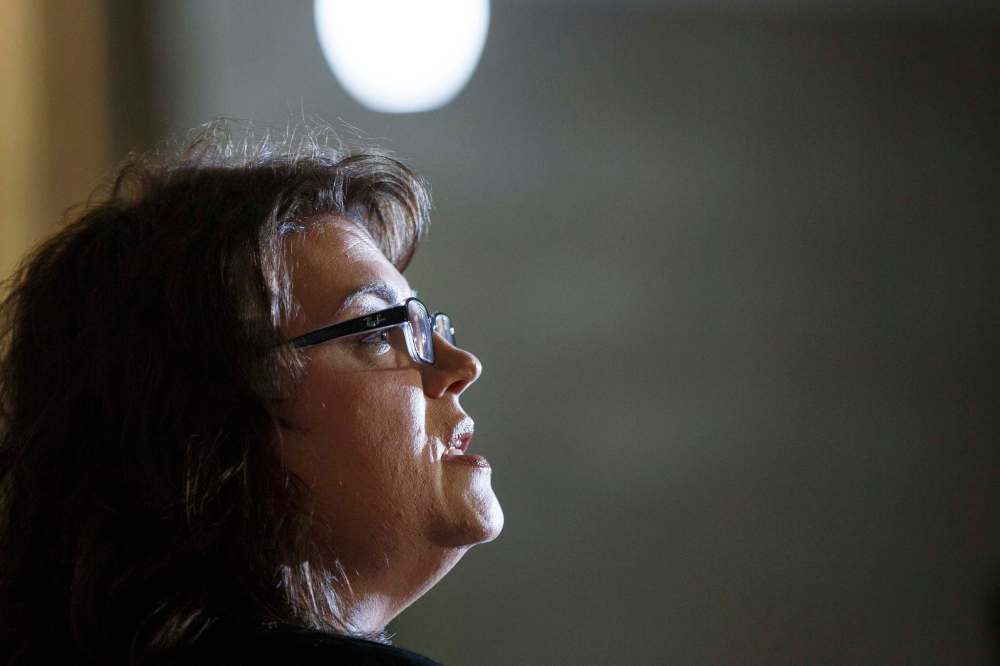Crown corp. marching orders include push for more private-sector involvement in liquor sales
Advertisement
Read this article for free:
or
Already have an account? Log in here »
To continue reading, please subscribe:
Monthly Digital Subscription
$0 for the first 4 weeks*
- Enjoy unlimited reading on winnipegfreepress.com
- Read the E-Edition, our digital replica newspaper
- Access News Break, our award-winning app
- Play interactive puzzles
*No charge for 4 weeks then price increases to the regular rate of $19.00 plus GST every four weeks. Offer available to new and qualified returning subscribers only. Cancel any time.
Monthly Digital Subscription
$4.75/week*
- Enjoy unlimited reading on winnipegfreepress.com
- Read the E-Edition, our digital replica newspaper
- Access News Break, our award-winning app
- Play interactive puzzles
*Billed as $19 plus GST every four weeks. Cancel any time.
To continue reading, please subscribe:
Add Free Press access to your Brandon Sun subscription for only an additional
$1 for the first 4 weeks*
*Your next subscription payment will increase by $1.00 and you will be charged $16.99 plus GST for four weeks. After four weeks, your payment will increase to $23.99 plus GST every four weeks.
Read unlimited articles for free today:
or
Already have an account? Log in here »
Hey there, time traveller!
This article was published 30/04/2019 (2421 days ago), so information in it may no longer be current.
The province’s Crown corporations received new marching orders from the Pallister government Tuesday, with the main message being to increase efficiencies and trim costs.
Manitoba Liquor & Lotteries Corp. was told to encourage more private-sector involvement in liquor sales and distribution, while reviewing mark-up policies on its products.
Manitoba Public Insurance was told to play nice with the province’s insurance brokers to come up with a modernization plan for service delivery both sides can live with.

And Manitoba Hydro was told it must work “closely” with senior government officials on any long-term sales commitments “to ensure return on investment.”
The new directions came in the form of mandate letters from Crown Services Minister Colleen Mayer. Each of the major corporations were told the government expects them to reduce their workforces in line with what the Progressive Conservatives have done with the provincial civil service. That means reducing management positions by 15 per cent, overall staffing by eight per cent.
Manitoba Hydro says it has already met these staffing targets, and Mayer wasn’t clear with reporters about how much more the province’s largest Crown was expected to cut.
She said Hydro should consider whether future vacancies need to be filled. “Opportunities (to find savings) present themselves,” she said.
“The province’s efforts to achieve fiscal sustainability requires all of us to work together,” Mayer said in a portion of the letters that was common to all three corporations. “In the past, our Crown corporations have struggled to properly manage their costs and strayed outside of their mandates. We expect you to scrupulously manage all operating costs, defer all non-critical capital projects without a clear return on investment and carefully examine business plans for opportunities to achieve improved financial results.”
In her letter to MLL, Mayer asked the corporation to look into ways of reducing the costs of buying booze, including the possibility of shared procurement with other provinces. She also asked it to look at encouraging the expansion of local brew and distillery pubs.
Mayer said she expected MLL to increase the annual dividend it pays to the province through cost reduction. She said the increased profits should be accomplished without increasing capital investments. Recently, the government vetoed the corporation’s plans to refurbish the Club Regent casino in Winnipeg.
Mayer did not offer any ideas on how MLL could boost private-sector involvement in booze sales.
However, in answer to a reporter’s question, she said the government was not envisaging a fully private retail liquor system; public liquor stores would be kept.
“I’m looking for opportunities and options that will enhance the model that we currently have.”
While Manitoba Hydro has previously reduced its workforce along the guidelines dictated by government, it was not immediately clear what impact the proposed staffing reductions would have on MLL and MPI.
Susan Harrison, a spokeswoman for MLL, said in an email the corporation has achieved a reduction of more than 15 per cent in management positions. But she did not say what progress had been made in reducing overall staffing levels.
“We continually strive to carefully manage staffing levels to ensure operational effectiveness, and moving forward, we will continue to identify staff efficiencies and find opportunities to improve our financial results,” she said.
Meanwhile, in a mandate letter to the Manitoba Centennial Centre Corp., Mayer asked it work with her department to develop a five-year plan “to achieve self-sufficiency.”
However, she told reporters the government was not looking to eliminate grants to the corporation at the end of five years. Pressed about what she meant about “self-sufficiency,” she said the government simply wanted the corporation to be “economically responsible.”
She also complimented the corporation’s board, saying it had “worked very well over the last several years” and turned a small profit.
The corporation includes such properties as the Centennial Concert Hall, Manitoba Museum, Royal Manitoba Theatre Centre, Artspace (Gault Building), three surface parking lots and an underground parkade.
larry.kusch@freepress.mb.ca

Our newsroom depends on a growing audience of readers to power our journalism. If you are not a paid reader, please consider becoming a subscriber.
Our newsroom depends on its audience of readers to power our journalism. Thank you for your support.



